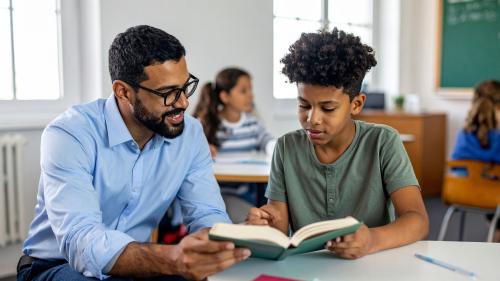
-
Understanding primary immunodeficiency (PI)

Understanding PI
The more you understand about primary immunodeficiency (PI), the better you can live with the disease or support others in your life with PI. Learn more about PI, including the various diagnoses and treatment options.
-
Living with PI
-
Addressing mental health
-
Explaining your diagnosis
- General care
- Get support
- For parents and guardians
-
Managing workplace issues
- Navigating insurance
-
Traveling safely

Living with PI
Living with primary immunodeficiency (PI) can be challenging, but you’re not alone—many people with PI lead full and active lives. With the right support and resources, you can, too.
-
Addressing mental health
-
Get involved

Get involved
Be a hero for those with PI. Change lives by promoting primary immunodeficiency (PI) awareness and taking action in your community through advocacy, donating, volunteering, or fundraising.
-
Advancing research and clinical care
-
Research Grant Program
-
Consulting immunologist
-
Diagnosing PI
-
Getting prior authorization
-
Clinician education
-
Survey research
-
Participating in clinical trials

Advancing research and clinical care
Whether you’re a clinician, researcher, or an individual with primary immunodeficiency (PI), IDF has resources to help you advance the field. Get details on surveys, grants, and clinical trials.
-
Research Grant Program
With the return of students to school, parents of children treated for severe combined immunodeficiency (SCID) have lots of questions concerning how to protect their children during the pandemic, but also provide them with opportunities to see classmates and teachers face-to-face.
Below are the questions they’ve posed and the answers provided by Dr. Jolan Walter, Division Chief of the University of South Florida (USF) and Johns Hopkins All Children’s Pediatric Allergy & Immunology Programs, and Dr. Jack Routes, Professor of Pediatrics (Allergy, Asthma & Immunology) and Microbiology & Immunology, and Chief, Section of Allergy and Clinical Immunology at the Medical College of Wisconsin. Both are advisory physicians to the SCID Compass program.
Do you recommend that a child treated for SCID who is age 12 or older, regardless of immune reconstitution status, receive the COVID vaccine? Why or why not?
Both Dr. Walter and Dr. Routes, in accordance with CDC guidelines, recommend that all people age 12 and above receive the COVID vaccine, including those with SCID who have received a hematopoietic stem cell transplant (HSCT) in the past, regardless of whether their immune system is fully or partially reconstituted.
“Even if they have a partially reconstituted immune system, with some antibody deficiency, there still may be a benefit for any kind of immune response to the vaccine,” said Dr. Walter. “The vaccine is very safe and easy to access.”
Do you recommend that persons treated for SCID who are old enough and have already been vaccinated receive a booster vaccine now? Why or why not? If the first series was Pfizer, would you recommend getting a Moderna or Johnson & Johnson booster and vice versa? Why or why not?
Dr. Walter and Dr. Routes support booster vaccines for those who have been treated for SCID.
Dr. Routes said studies show that people who are immunocompromised have increased breakthrough infection despite being fully vaccinated and that an additional vaccine dose increases antibodies against COVID-19 and may prevent breakthrough infections.
Dr. Routes, in accordance with CDC guidelines, recommends persons moderately to severely immunocompromised receive an additional dose of the vaccine. This includes people who received a hematopoietic stem cell transplant (HSCT) within the last two years or are taking medicine to suppress the immune system.
If the HSCT was greater than two years ago, he said, the decision on whether to receive the booster shot should be made in discussion with the patient’s doctor, based on their immune status and the presence of other risk factors for severe COVID-19 infection, including if they are receiving immunosuppressive therapy.
Dr. Walter said she recommends that her immunodeficient patients receive a booster vaccine between three and eight months after the date of their last full vaccine course.
She also advises that patients stay with the same brand of vaccine – either Moderna or Pfizer - when receiving the booster.
“I recommend people not to mix and match different brands,” she said.
If a person received a Johnson & Johnson, the follow-up is slightly different, said Dr. Walter.
“With the rise of the delta SARS-CoV2 variant, there are concerns about the effectiveness of all vaccines as the virus, with changes in its spike protein, may escape the antibodies generated with immunization. The data of effectiveness is highly variable for SARS-CoV2 vaccinations, and the number of patients assessed in these studies is limited,” said Dr. Walter.
“J&J is a one-time vaccine, and many of our adolescents decided to get that because it was easier than getting the two vaccines. So if you had the J&J, maybe then I would consider Pfizer or the Moderna (as a booster) to potentially increase effectiveness. This is my personal opinion, and I am not aware of head-to-head comparative studies between vaccines.”
If a teen or a child treated for SCID has had all the necessary doses of the vaccine, would you suggest they attend school in person or stay virtual? Why or why not?
Dr. Walter said the answer to sending a child back to school depends on how prevalent the virus is in your community, particularly those locations with surges of the delta variant.
“Anybody who has a suboptimal immune response or immune reconstitution with SCID in highly spiking areas with COVID, I would recommend to avoid the school or be very careful about the school surroundings,” she said.
“A patient with partial immune reconstitution can have antibody deficiency components, or the T cell responses are not adequate. I would be very careful about letting the child go back to school, even with social distancing and masking.”
However, if a child is five or more years post-treatment and has a fully reconstituted immune system because they are like their peers at that point, she does not object to sending them back to school, provided there is masking, social distancing, and reassuring conversation with the child’s immunologist.
Dr. Routes said the decision to send a child treated for SCID (who has been fully vaccinated) back to school is a difficult one and should be made in conjunction with a provider taking numerous factors into account.
Among the factors the doctor will consider are:
- How long since the HSCT?
- How is the person’s immune function after HSCT?
- Does the child/teen make normal levels of antibodies to vaccines?
- Does the child/teen have any other risk factors for severe COVID infection?
- Is the child/teen on immunosuppressive medications?
- Does the school district follow the recommendations of the CDC to limit the spread of COVID? Some recommendations by the CDC include mandatory masking, social distancing, and hand hygiene.
- Are the teachers and staff vaccinated?
- What is the prevalence of COVID-19 in the community?
- If a school hasn't implemented a mask mandate, does your recommendation change?
Both doctors agreed that masks are essential for a safe return to school. Therefore, schools not requiring masks would influence their decision to recommend that a child treated for SCID attend school in person.
“We are still in the middle of the pandemic. So, I personally believe in the importance of a mask mandate for unimmunized children and even those who are immunized during a high surge of the virus. Both children and their teachers can be vulnerable, so anything we can do to stop or mitigate this process is for the benefit of all. In general, I'm in favor of using masks in school, which would apply just as much to the SCID population,” said Dr. Walter.
Dr. Routes reiterated that parents should have conversations with providers.
“If the school has not implemented CDC recommended safety practices, it would influence my opinion, in particular now that cases of COVID-19 are dramatically increasing,” said Dr. Routes.
“Implementation of CDC guidelines to diminish the spread of COVID-19 is essential to protect all of our children, including those that have undergone a HSCT for SCID.”
If a child treated for SCID has not had the vaccine, would you suggest that they attend school in-person or virtual? Why or why not?
“If the child is unvaccinated, especially because of their age, below 12, I would be very, very careful of the school environment, especially in the absence of CDC recommended safety practices,” said Dr. Walter.
“It's always better to err on the side of caution. Especially if your child is partially immune reconstituted with antibody deficiency component or T cell abnormalities, then they're going to be at high risk of possible complications when infected, so I would advocate against these children going to school. Naturally, the final decision is best made between the provider and the family of the patient given all circumstances.”
Dr. Routes advised seeking advice from your provider and expressed his concern about sending an unvaccinated child treated for SCID to school.
“In general, I would be more hesitant to recommend school to a younger, unvaccinated patient that has undergone HSCT,” he said.
What are some considerations parents of children who have been treated for SCID must keep in mind when sending all of their children back to school, whether it’s their child who has been treated for SCID or the siblings of the child with SCID? Do parents need to be a little more cautious?
“I recommend being cautious about siblings of SCID patients in the peritransplant process. Young siblings could be asymptomatic and still shed the virus at home. So I think at this time, in the middle of the pandemic, siblings attending school can pose a risk,” said Dr. Walter.
“If they're siblings of SCID patients post-transplant, who already have a fully reconstituted immune system, it's a different matter. These patients should be able to mount an immune response to protect them.
“Then, depending on the level of the antibody deficiency or T cell dysfunction, that should be at the discretion of the local immunologist and the BMT doctor.
“Again, it's a very fine line, and you have to weigh in all circumstances, including the patient's clinical history and level of immune reconstitution (or function), to make this call. Sometimes I think that’s hard for parents to fully understand.”
For those SCID students with 504 Plans or IEP’s, are there accommodations or items parents of a child treated for SCID should be discussing with school staff regarding additional COVID precautions? Can you write accommodations for COVID into the 504 plan?
Dr. Walter said COVID accommodations are not practical to include in a 504 Plan or an IEP.
“I think it's very hard to write those into the school plan because even if you are asking for all the masking and hand washing and social distancing, it is just very hard to achieve it in a school setting when not all children may be obligated to do that,” she said.
For a child who’s been treated for SCID who's currently on immunoglobulin therapy and has been fully vaccinated against COVID, is there a way to test for antibodies?
Out of the several tests on the market to test for antibodies to COVID, Dr. Walter recommends that testing for neutralizing antibody levels is the most valuable information.
“You want to look for an assay that has the word ‘neutralization’ in the testing because that would really reflect that the antibody is strongly binding and eliminates the virus,” she explained.
“In a normal individual, we assume that when they have presence of antibodies, it is default neutralizing, but in the case of an immune-deficient patient antibodies to SARS-CoV-2 may be detected but may not be neutralizing. So, beyond looking for the level of antibodies, I recommend testing for neutralization capacity.”
Dr. Walter also suggested using a T cell assay specific for COVID T cell responses to determine whether or not a person is protected from a T cell perspective.
Dr. Routes pointed out that there is no commercially available test that indicates if a patient that underwent HSCT makes sufficient neutralizing antibodies to protect against COVID19.
“This issue is further complicated by the fact that neutralizing antibodies to COVID-19 are present in the commercial preparations used for immunoglobulin therapy. We do not have any information in the United States to indicate that antibody levels against COVID19 in immunoglobulin therapy are high enough to protect people,” he said.
Do you have any updates on when you think a vaccine might be available for children younger than 12?
Neither doctor could predict when a vaccine would be ready for distribution to children younger than 12.
“I'm really hopeful that by the end of the fall, as studies are ongoing,” said Dr. Walter.
To learn more, click here to visit the IDF COVID-19 Update Page.
Related resources
Sign up for updates from IDF
Receive news and helpful resources to your cell phone or inbox. You can change or cancel your subscription at any time.





The Immune Deficiency Foundation improves the diagnosis, treatment, and quality of life for every person affected by primary immunodeficiency.
We foster a community that is connected, engaged, and empowered through advocacy, education, and research.
Combined Charity Campaign | CFC# 66309




